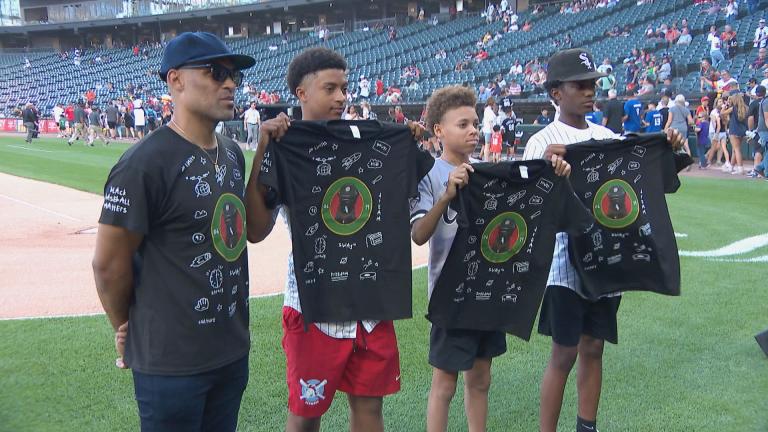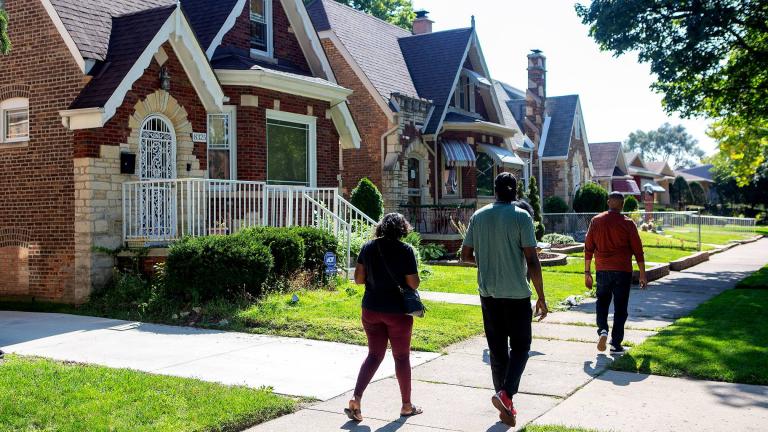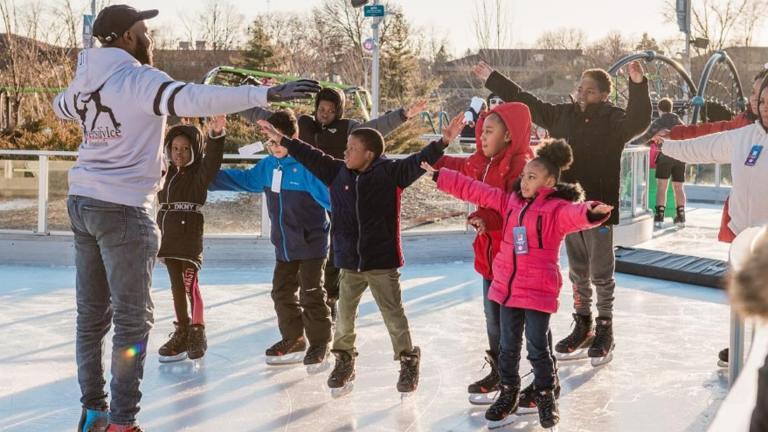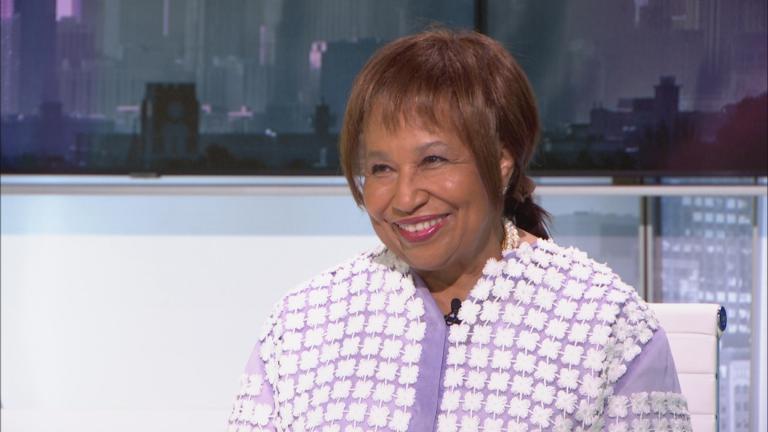In a moment when it seems like storefronts are awash in “Help Wanted” signs and job listings are overflowing, it might be surprising to hear that anyone is having a hard time finding a job — but many Black Americans are finding they’re still shut out of the workforce.
Nationwide unemployment in August stood at 3.7%, but for Black Americans that rate was 6.4%, roughly in line with a gap that has existed for as long as the Bureau of Labor Statistics began reporting that data. And locally, the racial unemployment gap is even starker. While the overall unemployment rate for Chicago is nearly 5.8% in August, the rate for Black residents is more than twice that, at 14.3%.
“Some of the barriers that we see for Black job seekers is first and foremost a lack of diverse hiring practices in the labor market,” said Cleophus Lee, executive director of CBO Collective. “To give some specifics, we see poor work history, we see education, a lack of education and credentials. Of course, many have had some contact with the justice system and just a lack of resources that would help to position these individuals for success in the labor market.”
Richard Wallace, executive director of the nonprofit Equity and Transformation, says his organization helps organize people who work in what is known as the “informal market.”
“If you think about someone selling DVDs or selling socks, those are informal workers. You think about the bucket boys. Those are also informal workers,” Wallace said. “A number of our members … have been boxed out of formal labor opportunities. I think one of the highest rates generally comes from folks who have marked criminal histories. So being marked with a criminal record in general, the cycle goes, we applied for multiple jobs and we’re denied, but the demand to produce capital, to buy food, to pay rent, etc. is consistent, even though the employment isn’t. And so a lot of folks can re-engage in the informal economy because they have no other choice.”
Lee’s organization CBO Collective comprises 16 nonprofit organizations coordinating to bring more and better opportunities directly to Chicago’s unemployed.
“We’re going directly to the neighborhoods that are affected the most, and we’re bringing a host of opportunities. And so we do this, by hosting hiring resource events where we’re bringing employers together that have a host of employment opportunities,” Lee said. “We’re also partnering with employers to help them to address internal and cultural issues that prevent this population from advancing along with other initiatives that we’re working with.”
Lee said employers share responsibility for improving the Black employment situation, too.
“We believe to aid in this effort, businesses first must look at their hiring practices and make the necessary changes that will create opportunities for individuals specifically in the Black and Brown communities to successfully enter into the labor market,” Lee said. “And then secondly, we believe that businesses must pay these individuals a living wage, pay them so that these individuals can have the opportunity to care for themselves, care for their family … And then thirdly, we believe that businesses must create pathways of advancement within these companies, within these companies. So when individuals join their companies, they’re able to move up and not just remain stuck in the position they started.”
Wallace says research shows a correlation between the high rates of unemployment in predominantly Black neighborhoods and high rates of violence.
“In 2021, Equity and Transformation released the survival economies report talking about informal labor, focused on West Garfield Park. We found that nearly 29% of the folks that were surveyed said that they never had a job that provided a regular paycheck. Forty-eight percent reported that traditional employment opportunities were simply not available,” Wallace said. “When you read statistics like that, the entire state should be alarmed because that means that 48% of West Garfield Park residents are literally detached from the very system built for their survival. And this is not an agrarian society, right? Or a barter and trade society, you literally have to sell your labor to make money and use that money to buy the things you need to survive.”








